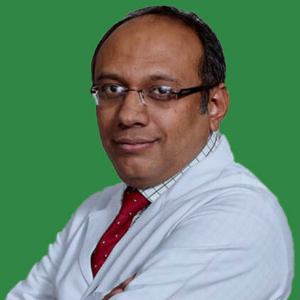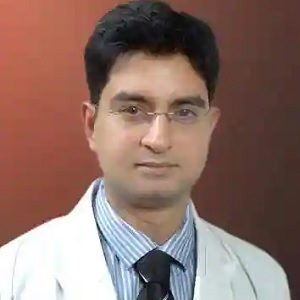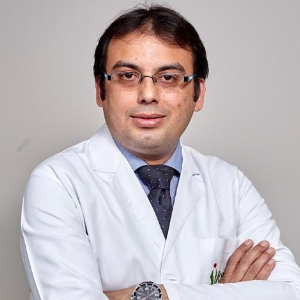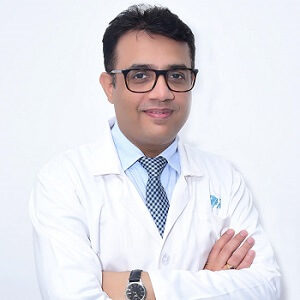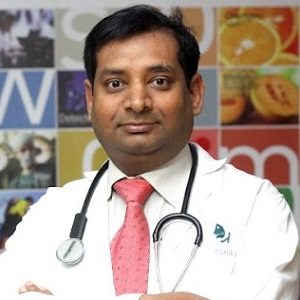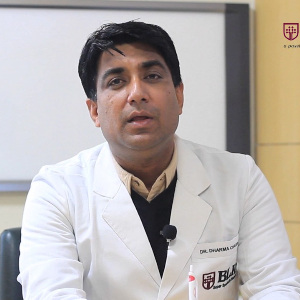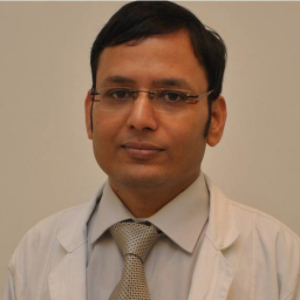A comprehensive Guide for International Patients on Bone Marrow Transplant in India
In this article, we have covered the following:
- Best BMT Doctors in India (Paediatric & Adult BMT)
- Best Hospitals in India for Bone Marrow Transplant
- Know about Bone Marrow Transplant (BMT)?
- When is BMT done?
- How is BMT done?
- Things to know about BMT
- Cost of Bone Marrow Transplant in India
- How we help for smooth & hassle-free treatment in India
Best Bone Marrow Transplant Doctors in India
- Hematologist & BMT Specialist, Gurugram, India
- Over 20 years’ experience
- Fortis Memorial Research Institute
Profile Highlights:
- Dr. Rahul Bhargava is a leading Hematologist and BMT specialist who specializes in Haploidentical and unrelated match transplants and has performed over 1500 transplants till date.
- He became the first doctor in India to introduce BMT for Multiple Sclerosis in 2016.
- With his team of oncology specialists, Dr. Rahul Bhargava performed the first Haploidentical BMT on a Fanconi Anemia patient in India.
- Hemato Oncologist, Gurugram, India
- Over 20 years’ experience
- Medanta-The Medicity, Gurgaon
Profile Highlights:
- Dr. Nitin Sood is the Director of the Department of Hemato Oncology and BMT at Medanta-The Medicity, Gurugram.
- He is an expert in treating patients suffering from lymphoma, myeloma, bleeding and clotting disorders, thalassemia, and aplastic anemia.
- Pediatric Hemato Oncologist & BMT Specialist, Gurugram, India
- Over 20 years’ experience
- Fortis Hospital Shalimar Bagh, Fortis Memorial Research Institute
Profile Highlights:
- Dr. Vikas Dua is one of the best Pediatric Hemato Oncologist and BMT specialist in India with over 200 pediatric BMTs to his credit.
- His primary area of expertise is Pediatric Haploidentical transplants, but he is also skilled in doing BMTs for pediatric patients with leukemia and thalassemia.
- He received his training in Pediatric BMT from St. Jude Children’s Research Hospital in Memphis and holds Fellowship in Pediatric BMT from the National University Hospital in Singapore.
- Pediatric Hemato-oncologist, Hematologist, BMT Specialist, New Delhi, India
- Over 17 years’ experience
- Indraprastha Apollo Hospital, New Delhi
Profile Highlights:
- Dr. Gaurav Kharya is one of India’s top pediatric hematologists. He has over 17 years of expertise and is affiliated with Indraprastha Apollo Hospital.
- Dr. Kharya specializes in Pediatric Hemato-Oncology, Immunology, and BMT. He has extensive expertise in transplanting in children with benign or malignant blood abnormalities, immunological disorders, and other conditions both nationally and internationally.
- Dr. Kharya performed around 600 BMTs with his team. He undertook the first Haploidentical BMT for sickle cell disease in India. He also depleted TCR alpha beta CD 19 in invitro by haploidentical BMT in a 4-month-old baby with severe combined immunodeficiency.
- Hemato Oncologist & BMT Specialist, New Delhi, India
- Over 20 years’ experience
- Indraprastha Apollo Hospital, New Delhi
Profile Highlights:
- Dr. Shishir Seth is a Hemato Oncologist and BMT specialist currently practicing at Indraprastha Apollo Hospital, New Delhi
- He is an expert Hematologist and Hemato-Oncologist with an interest in the management and treatment of different blood diseases (benign and malignant).
- He has performed over 200 Hematopoietic BMTs successfully of which 40 included Allogenic Haploidentical transplants and Antigen Mismatch transplants. He has also performed 300 Induction procedures for Acute Leukemia.
- With an experience of 20+ years in Hematology and BMT, Dr. Seth has achieved several feats in his career that have gained him immense popularity and recognition.
- Dr. Shishir Seth is involved with research work as well and has numerous publications in his name in various national and international journals.
- Hemato Oncologist & BMT Specialist, New Delhi, India
- Over 20 years’ experience
- BLK Super Specialty Hospital, New Delhi
Profile Highlights:
- Dr. Dharma Choudhary is a renowned Hemato-Oncologist and BMT specialist in India who has an extensive experience of over 20 years in the field. He is currently serving as the Vice Chairman of Hemato-Oncology & BMT at BLK-Max Super Speciality Hospital in Delhi.
- Throughout his career, he has carried out more than 2000 transplants that have saved lives, making him the most dependable and skilled specialist in the area.
- In addition to treating solid tumors and various benign blood disorders, Dr. Choudhary is an expert in BMT for leukemia and lymphoma (blood cancer) in adults.
- He holds the credit of performing some of the most complex BMTs in India and has had several successful results to his name.
- Hematologist, Gurugram, India
- Over 17 years’ experience
- Paras Hospital Gurugram
Profile Highlights:
- Dr. Rahul Naithani is a reputed clinical Hematologist and BMT expert in India who is currently serving as the Director & Head of Hematology and BMT at Paras Hospitals, Gurugram.
- He has performed over 260 BMTs till date for various conditions.
- He even started the Hematology and BMT program at Max Healthcare after he returned from Canada.
- His incredible skills and proficient work experience are currently helping him indulge in scientific research with multiple publications to his credit helping the national and international medical industry greatly.
Best Hospitals in India for Bone Marrow Transplant
- City: Gurugram, India
Hospital Highlights:
- Fortis Memorial Research Institute is a multi-super-specialty, quaternary care hospital with 1000 beds. The hospital comprises reputed clinicians, and international faculty and is also equipped with cutting-edge technology. The hospital is a part of Fortis Healthcare Limited, a reputed chain of private hospitals in India.
- It is a NABH-accredited hospital that is spread across 11 acres of land and has a capacity of 1000 beds. The hospital has 55 specialties and is one of the premier health care centers in the Asia Pacific region popularly known as “the Mecca of Healthcare”.
- The hospital has 260 diagnostic centers and is also equipped with the latest and advanced techniques that include 3 Telsa which is the world’s first Digital MRI technology. The hospital also has world-class Radiation Treatment techniques which have been developed by leading technology experts from Elekta and Brain Lab.
- City: Gurugram, India
Hospital Highlights:
- One of India’s best and largest multi-specialty hospitals, Medanta was built with the aim to bring India to the highest standards of medical care. The hospital has been providing the best medical services to its patients, since its inception, with care, commitment, and compassion.
- Equipped with 1250 beds, the hospital was founded by Dr. Naresh Trehan in the year 2009 with an aim to provide the best medical care at affordable costs. The hospital is spread across 43 acres and includes 45 operation theatres and 350 beds dedicated solely to ICU. The hospital includes over 800 doctors, and more than 22 specialty departments and has a dedicated floor for individual specialty in order to offer the best services under one roof.
- The hospital is considered one of the premier institutes in India for Cardiac Care and includes staffs and members of high caliber. The hospital has 6 distinct centers of excellence.
- City: Gurugram, India
Hospital Highlights:
- One of the most well-known hospitals in the Delhi NCR, Artemis Hospital is the first hospital in Gurugram to get accredited by the Joint Commission International.
- With more than 40 specialties, the hospital has been designed to be one of the most technically advanced hospitals in the country, with the best medical and surgical health care. The hospital has eleven special and dedicated centers, for Heart, Cancer, Neurosciences, etc.
- The latest technologies in the hospital include Endovascular Hybrid Operating Suite and Flat panel Cath Labs for the cardiovascular department, 3 Tesla MRI, 16 slice PET CT, 64 Slice Cardiac CT Scan, HDR Brachy Treatment, and highly advanced Image Guided Radiation Treatment techniques (LINAC) are installed in the hospital.
- The hospital has won several awards as well, since its inception.
- City: New Delhi, India
Hospital Highlights:
- One of the well-regarded providers in India committed to the highest standards of clinical excellence and patient care, Max Super Specialty Hospital is a part of Max Healthcare, which is the second-largest healthcare chain in India. Regarded as one of the most well-regarded healthcare providers in the country, Max Super Specialty Hospital is committed to the highest standards of clinical excellence as well as patient care. The hospital is also equipped with the latest technology as well as cutting-edge research. The hospital is known to deliver and ensure the highest level of patient care.
- The hospital has more than 500 beds and offers treatment for over 35 specialties. The hospital also holds the credit of having installed the first Brain Suite in Asia. This is a highly advanced Neurosurgical machine that allows MRI to be taken while surgery is ongoing.
- Other advanced and latest technologies are also installed in the hospital such as the 1.5 Tesla MRI machine, 64 Slice CT Angiography, 4D ECHO, LINAC, and 3.5T MRI machine.
- City: New Delhi, India
Hospital Highlights:
- Equipped with 650 beds, BLK-Max Super Speciality Hospital is the largest stand-alone private sector hospital in Delhi.
- With over 1500 healthcare providers and 150 globally renowned super specialists, the hospital is one of Asia’s largest BMT Centres. The hospital is known for having some of the best cancer doctors in the country.
- The hospital is NABH and NABL accredited and was inaugurated by the first Prime Minister of India. Pt. Jawahar Lal Nehru.
- City: Mumbai, India
Hospital Highlights:
- Kokilaben Dhirubhai Ambani Hospital, Named after the wife of Indian industrialist Dhirubhai Ambani, the founder of Reliance Industries, this is one of the top hospitals in Mumbai. This 750-bed multi-specialty hospital became operational in 2009. Known as one of India’s most advanced tertiary care facilities, the hospital is designed to raise India’s global standing as a healthcare hub, with an emphasis on excellence in clinical services.
- Kokilaben Dhirubhai Ambani Hospital uses Protocol and Care Pathway based treatment models to ensure the best outcomes for patients.
- The hospital represents a confluence of top-notch talent, cutting-edge technology, state-of-the-art infrastructure, and, most importantly commitment.
- The hospital also holds the accreditation of the NABH, NABL, CAP, and JCI.
- The hospital has been recognized as the No. 1 Multispecialty Hospital in Mumbai and the West Zone for the fifth year in a row in 2020 by The Week.
- City: Chennai, India
Hospital Highlights:
- Apollo Hospitals, Chennai, is one of the best hospitals for heart care in India. Over the years, Apollo has expanded all over India, as a healthcare chain.
- India’s first ‘Only Pancreas’ transplant was performed in Apollo Hospital. The hospital is known for successfully performing Asia’s first en-bloc combined heart and liver transplant, and over the years, it has attained a remarkable achievement in the global healthcare space. Around 3-4 organ transplants are performed in the hospital per day.
- Equipped with over 500 beds, this hospital in Chennai was established in 1983 and since then has been among the most preferred hospital for patients from all over the world.
- The hospital holds accreditation of the NABH and JCI and is the first hospital in India to be ISO 9001 and ISO 14001 certified. It is also the first South Indian Hospital to receive subsequent reaccreditation from the JCI USA 4 times.
ALL ABOUT BONE MARROW TRANSPLANT (BMT)
What is a Bone Marrow Transplant?
A bone marrow transplant (BMT) is a medical procedure used to replace damaged or destroyed bone marrow with healthy bone marrow stem cells. Bone marrow, the spongy tissue inside bones, is crucial for producing blood cells: red blood cells, white blood cells, and platelets. A transplant can restore the body’s ability to produce these cells and combat diseases or the effects of aggressive treatments like chemotherapy.
When is a Bone Marrow Transplant Needed?
Bone marrow transplants are recommended for patients with certain medical conditions, including:
- Blood Cancers: Such as leukemia, lymphoma, and myeloma.
- Bone Marrow Diseases: Such as aplastic anemia.
- Inherited Blood Disorders: Such as sickle cell anemia and thalassemia.
- Immune System Disorders: Such as severe combined immunodeficiency (SCID).
These conditions often damage or destroy the bone marrow, impairing the body’s ability to produce healthy blood cells.
How is a Bone Marrow Transplant Done?
The bone marrow transplant process involves several key steps:
Pre-Transplant Preparation:
- Conditioning: This phase involves chemotherapy and/or radiation therapy to destroy the patient’s damaged bone marrow and suppress the immune system to prevent rejection of the transplanted cells.
Harvesting:
- Autologous Transplant: The patient’s own healthy stem cells are collected, stored, and later reinfused.
- Allogeneic Transplant: Stem cells are collected from a donor, who may be a family member or an unrelated matched donor.
Transplantation:
- The harvested stem cells are infused into the patient’s bloodstream through an intravenous (IV) line. These cells travel to the bone marrow, where they begin to produce new, healthy blood cells.
Post-Transplant Care:
- Patients are monitored for complications such as infections, graft-versus-host disease (in allogeneic transplants), and graft failure. Regular blood tests and supportive treatments are necessary during this recovery period.
Things to know about Bone Marrow Transplant
- Risks and Complications: Potential complications include infection, bleeding, organ damage, and graft-versus-host disease.
- Recovery Time: Recovery can take several months to a year. During this period, patients need to be closely monitored.
- Success Rates: The success of a BMT depends on various factors, including the patient’s condition, age, and the type of transplant.
- Lifestyle Adjustments: Post-transplant, patients may need to make significant lifestyle changes to avoid infections and manage side effects.
Who Performs the Bone Marrow Transplant Procedure?
Bone marrow transplants are performed by a specialized team of healthcare professionals, including:
- Hematologists and Oncologists: Doctors specialized in blood disorders and cancer.
- Bone Marrow Transplant Surgeons: Specialists who perform the harvesting and transplant procedures.
- Nurses and Transplant Coordinators: Who provide pre- and post-transplant care and support.
- Other Specialists: Such as infectious disease experts, dietitians, and physical therapists to support holistic patient care.
Cost of Bone Marrow Transplant in India
India is a popular destination for medical tourism due to its high-quality healthcare services at competitive prices. The cost of a bone marrow transplant in India can vary widely based on factors such as the type of transplant, the hospital, the city, and the patient’s condition. On average:
- Autologous Transplant: Approximately $$25,000
- Allogeneic Transplant: Approximately $30,000 to $40,000
These costs typically include pre-transplant evaluation, the transplant procedure, post-transplant care, and hospitalization. However, international patients should budget for additional expenses such as travel, accommodation, and any unforeseen medical complications.

